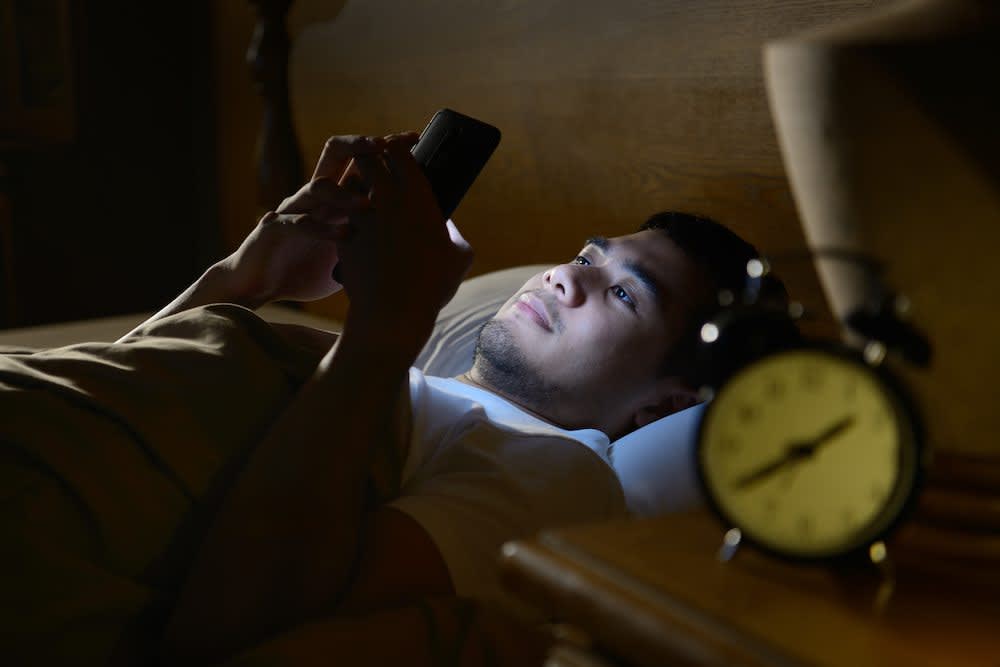Getting the right amount of sleep each night helps people think clearly and feel their best. Even though many people understand the importance of sleep, more than 30% of adults in the United States get less than seven hours of sleep each night.
To get the full benefits of sleep, experts recommend focusing on developing healthy sleep habits. One of the most important sleep habits is keeping to a person’s sleep schedule. Learn about the importance of a sleep schedule, the best sleep schedule for different age groups, and how to stick to a consistent bedtime routine.
The Importance of a Consistent Sleep Schedule
Sticking to a consistent sleep schedule helps you get the right amount of sleep for your unique needs. Going to sleep and waking up at the same times every day, even on holidays and weekends, can make it easier to fall asleep quickly at night. It can also help you wake up on time and feel refreshed in the morning.
Optimizing your sleep schedule to get the right amount of sleep comes with a wide range of benefits. Getting enough rest helps you get sick less often and maintain a healthy weight. Staying well-slept also puts you at a lower risk of chronic health issues like heart disease and diabetes.
Getting enough sleep also benefits your mental health by lowering stress, improving your mood, and helping you concentrate at school or work. And avoiding sleep deprivation lowers your risk of drowsy driving, a dangerous habit that contributes to nearly 100,000 car accidents each year.
Sleep Schedules By Age
The amount of sleep you need depends on various factors, including your age, health, lifestyle, and what amount of sleep leaves you feeling your best. In general, children and teenagers require more sleep than adults.
Sleep Schedules for Newborns, Infants, and Toddlers
Newborn sleep schedules should allow for 14 to 17 hours of sleep each day. Newborns sleep in cycles that continue both at night and during the day, often sleeping for an hour or two before staying awake from one to three hours. Newborns’ daily sleep needs continue to change as they grow into infants and toddlers.
- Newborns: Newborns from 0 to 3 months old need 14 to 17 hours of sleep each day.
- Infants: From 4 to 11 months old, infants need 12 to 15 hours of sleep every day.
- Toddlers: Toddlers from 12 to 24 months need 11 to 14 hours of sleep each day.
Around 4 to 6 weeks old, newborns may begin to sleep for four hours at a time before spending about four hours awake. Infants usually begin to transition to a day-night sleep schedule when they are about 4 to 6 months old. Between the age of 9 months and their first birthday, toddlers may begin to sleep eight or nine hours consecutively through the night.
Sleep Schedules for Children
Regular and predictable bedtime routines help young children fall asleep earlier in the evening, doze off more quickly, and wake up less often at night. A young child’s caregivers also sleep better if they accompany their child through a nightly routine.
Children’s sleep schedules shift as they continue to grow and develop.
- Preschool-Aged Children: From 3 to 5 years old, children require 10 to 13 hours of sleep each night.
- School-Aged Children: Children aged 6 to 12 years old require 9 to 11 hours of nighttime sleep.
Keeping these sleep needs in mind can be helpful when setting a child’s bedtime.
Morning Wake Time | Bedtime for 10 Hours of Sleep | Bedtime for 11 Hours of Sleep | Bedtime for 12 Hours of Sleep | Bedtime for 13 Hours of Sleep |
|---|---|---|---|---|
6 a.m. | 8:00 p.m. | 7:00 p.m. | 6:00 p.m. | 5:00 p.m. |
7 a.m. | 9:00 p.m. | 8:00 p.m. | 7:00 p.m. | 6:00 p.m. |
8 a.m. | 10:00 p.m. | 9:00 p.m. | 8:00 p.m. | 7:00 p.m. |
9 a.m. | 11:00 p.m. | 10:00 p.m. | 9:00 p.m. | 8:00 p.m. |
The need for naps declines during childhood. While young toddlers may still need one to four naps daily naps, by 18 months toddlers may only need one nap each day. Nap times can be spaced out based on a child’s age and how many naps they’re taking each day.
Sleep Schedules for Teens and Young Adults
Teens undergo significant changes in their sleep patterns around puberty that can make them feel tired later in the day. Unfortunately, increased academic and social demands often make it difficult for teens and young adults to get the amount of sleep they need.
- Teenagers: From ages 13 to 18, teens need 8 to 10 hours of sleep each night.
- Young Adults: Young adults require between 7 and 9 hours of sleep every night.
Sticking to a consistent bedtime can help teens and young adults fall asleep faster and get the right amount of sleep. The best sleep schedule for teens and young adults depends on when they need to wake up for school, work, or other activities.
Morning Wake Time | Bedtime for 7 Hours of Sleep | Bedtime for 8 Hours of Sleep | Bedtime for 9 Hours of Sleep | Bedtime for 10 Hours of Sleep |
|---|---|---|---|---|
6 a.m. | 11:00 p.m. | 10:00 p.m. | 9:00 p.m. | 8:00 p.m. |
7 a.m. | 12:00 a.m. | 11:00 p.m. | 10:00 p.m. | 9:00 p.m. |
8 a.m. | 1:00 a.m. | 12:00 a.m. | 11:00 p.m. | 10:00 p.m. |
9 a.m. | 2:00 a.m. | 1:00 a.m. | 12:00 a.m. | 11:00 p.m. |
Sleep Schedules for Adults and Older Adults
An adult’s sleep needs continue to change through their lifespan.
- Adults: Adults from 18 to 64 years old need around 7 to 9 hours of sleep each night.
- Older Adults: Adults aged 65 or older need 7 to 8 hours of sleep every night.
Although the majority of adults need between seven and nine hours of sleep each night, some adults only need six hours to wake up feeling refreshed and ready for the day. Others may require 10 or more hours of sleep each night in order to feel rested.
To determine the right sleep schedule, adults can consider when they naturally wake up and count backwards to find their ideal bedtime.
Morning Wake Time | Bedtime for 7 Hours of Sleep | Bedtime for 8 Hours of Sleep | Bedtime for 9 Hours of Sleep |
|---|---|---|---|
5 a.m. | 10:00 p.m. | 9:00 p.m. | 8:00 p.m. |
6 a.m. | 11:00 p.m. | 10:00 p.m. | 9:00 p.m. |
7 a.m. | 12:00 a.m. | 11:00 p.m. | 10:00 p.m. |
8 a.m. | 1:00 a.m. | 12:00 a.m. | 11:00 p.m. |
How to Fix Your Sleep Schedule
Fixing your sleep schedule may not always be easy, but doing so can help you improve the quantity and quality of your sleep. When you make sleep a priority, it can leave you feeling awake and refreshed during the day and benefit your overall health.
Practicing healthy sleep habits can help you fix your sleep schedule.
- Find the Right Bedtime: The most important way to fix your sleep schedule is to make sure you set aside enough time each night to get the rest you need.
- Stick to a Schedule: Sleep schedules involve going to bed and waking up at the same times each day. This includes sticking to your sleep schedule on weekends.
- Don’t Sleep in on the Weekend: While some people may try to make up for lost sleep by sleeping in on the weekend, this can actually make it more difficult to wake up at the right time on weekdays.
- Get Some Exercise: Incorporating physical activity or exercise into your day can help you sleep better, but stay away from vigorous physical activity just before bedtime.
- Be Careful With Caffeine, Alcohol, and Tobacco: Avoid substances that can keep you awake or interfere with your sleep schedule. This means staying away from caffeine, alcohol, and tobacco before bedtime.
- Turn Off Electronic Devices: If possible, don’t use electronic devices such as tablets, computers, and cell phones before you go to bed. They emit a light that can make it more difficult for you to sleep at night.
References
The Sleep Doctor Forum: Real Experiences, Real Connections
Continue the discussion on the Sleep Doctor Forum. Connect with experts and fellow forum members on CPAP, sleep apnea, and all things sleep. A priceless resource that’s free to join.









































